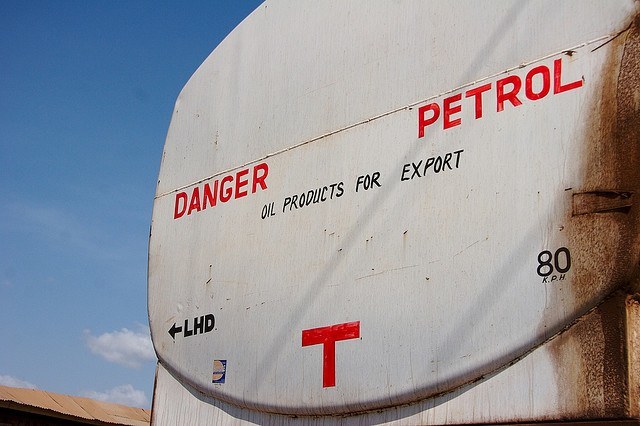In October over 60 families from Buseruka, a community displaced by oil extraction in West Uganda, walked 50 km to Hoima town to ask the government to give them what they had been promised since extraction began in their backyard. With them, they had a petition, signed by over 80 people, which included a number of grievances and that asked the government to finally buy them land, give them the deeds and build houses. What prompted this? Three years after acquiring the land from the community, the government had still not fulfilled its promise of adequately resettling and compensating the affected families.
As a follow-up on Friday 13th of November, a committee of ten representatives from Buseruka, met with a Commissioner at the Ministry of Energy, Mr. Robert Kasande, to express their dissatisfaction with the delay in constructing their new homes. Plus for those community members who had opted for cash payment there were significant delays.
When profits come before people, solutions offered to the communities will not often be sustainable or adequate. As we saw in our report Human Scars, there is a shared responsibility for both governments and extractive companies to use taxes, extraction revenue, to invest in the communities directly affected by the mining communities and do it through continuous dialogue.
In the case of Buseruka, the community rejected a housing plan the government had proposed in a resettlement village because it didn’t take into account their needs and inputs. This is often the key challenge with resettlement: the process can ignore an important community element relating to for example the location. Communities have built livelihoods in the area, they have formed relationships, habits and culture in the place they call home. To resettle a community for extractive activities, or any other reasons, is basically uprooting people from what has been their homes sometimes for centuries, it is cutting them off from their legacy and lifeline. This is why informed and prior consent is crucial. Even more so because it is rare that a community has the right to say no to an extraction project that will impact on their daily lives (see our step “To extract or not to extract?).
Informed consent can be problematic and often information is purposefully opaque (see our blog on CSR in Cameroon). This is where civil society has to be able to participate and to support affected communities by deciphering existing information, by creating opportunities for dialogue and by formulating the communities’ needs in an accessible, participatory and respectful manner.
For over three years PWYP Uganda’s members have been actively involved in fighting for the right of communities to be compensated and resettled. Having worked with affected communities directly on the options available (cash or land), on the options’ consequences, PWYP Uganda has campaigned to improve the understanding of valuation exercises, the property value in communities as well as ensuring fair and adequate compensation.
In the case of Buseruka, even the little information that was publicly available wasn’t understandable or in line with what the communities needed. More meaningful participation was required. To address this, PWYP Uganda organised awareness raising meetings and worked to ensure that both men and women are consulted and that they both give their consent. We have worked with people who had opted for land, to help them express their needs and disappointments articulated in the petition that the community presented. We have also organised several interactions between Officials of the Ministry of Energy as well as consultants hired by government to articulate their concerns. Unfortunately despite these efforts most of these concerns remain unaddressed.
An open dialogue between all parties is key to success. It helps the companies’ social licence to operate. Some companies have found that not building trust and openness with local communities has impacted their commercial activities negatively through unexpected costs, delays and sometimes even conflict or violence. This is why the coalition in Uganda is ensuring, through its local community based chapters, that communities are more involved and have larger role in issues related to extraction. After all, these are their homes we are talking about.











